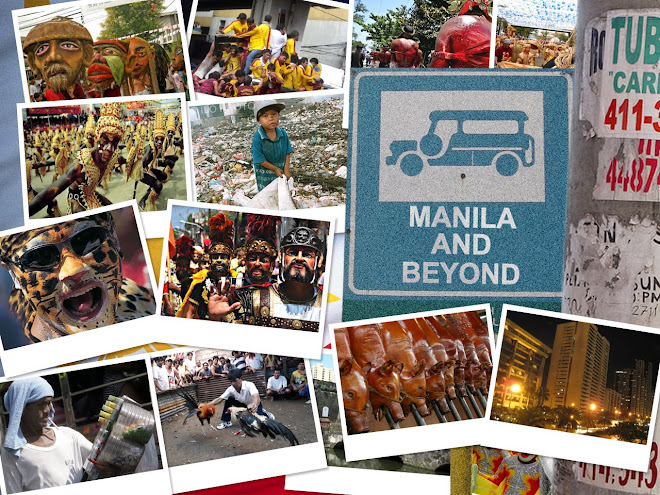Thursday, 24 June 2010, was declared a special non-working holiday within the City of Manila on the occasion of its foundation. Manila is one of the 17 cities that make up the Metropolitan Manila, also referred to as Manila, a fact that may at first sound confusing to any non-local trying to find his way in and out of the area.
Manila was born on the eastern banks of Pasig River, or Ilog Pasig. The historic Pasig River bisects the city and for centuries has served as the center of the city's trade, transport and livelihood. It has been said in legends that the Pasig River was the River Of Life, that it was teeming with fish and that one can actually drink the water from the river.
The image of Ilog Pasig as the source of life never existed as far as my consciousness is concerned. Before I was born, the river has already succumbed to the crutches of industrialisation. By 1990, the Pasig River was declared biologically dead. Efforts are being made to revive Ilog Pasig throughout the years, with the goal to convert it into a “zero toxic and clean river zone". It is a valiant but enormously daunting task, since the entire Metro Manila, having not figured out still how to dispose of its thousands of tons of trash that it produces daily, continues to dump most of its wastes in the river, as well as in Laguna De Bay and Manila Bay.
A portion of the Pasig River separates Mandaluyong and Makati City, and this part of the river is a 15-minute walk away from where I live. A few days ago I was walking along the banks of Pasig River, imagining it to be as alive as the River Seine, or Thames, or Nile, or one of those well-known rivers that gave rise to most of the great cities in the world. Instead, what I experienced was visual and olfactory assault (as if I did not expect this anyway).
I do know that everyone who cares about Manila has to do his share in the revival process. (It shocks me to see people willfully throwing their trash anywhere they please.) There is a lot of work to be done before the Pasig River begins to show signs of life once again. The biggest problem that can be linked to the revival of the Pasig River is definitely urban waste disposal. Unless this major concern is addressed, we can only watch the waters of a once vibrant river dredge into the murky depths of urban decay.
About Love And Discovering Yun Kouga-sensei
-
“*Have you ever been in love? Horrible isn't it? It makes you so
vulnerable. It opens your chest and it opens up your heart and it means
that someone can ...
12 years ago




























